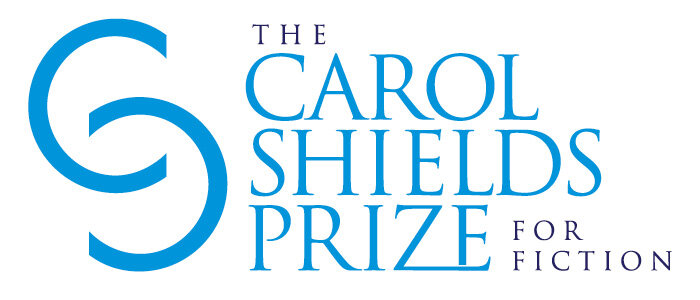When my friend Janice Zawerbny asked me to help her start a literary prize for women, I had no idea what I was signing up for. Zawerbny is a Toronto editor and she was upset by the grim statistics about women’s writing that I brought to a Vancouver Writers Fest panel in 2012.
Like people who knew about the international success of literary stars such as the late Toni Morrison and Margaret Atwood, I thought women’s writing was killing it.
Research proved me wrong. In both the US and Canada, women authors won a third of the literary prizes and received a third of the coverage for their books in magazines and newspapers. And although they publish roughly the same number of books as men, women earned 45 percent less.
There’s been improvement since 2012 but the overall stats are still discouraging. Today only 17 women out of 119 winners have won the Nobel Prize for Literature. Since 1918, female authors have won the Pulitzer Prize for Fiction 31 out of 94 times and the PEN/Faulkner Award for Fiction 13 out of 41 times.
Canadian statistics are more encouraging. The Scotiabank Giller Prize and the Atwood- Gibson Writers Trust Fiction Prize have an equitable gender balance but there are still weak spots. Female authors have won the Governor General Award in English language 31 out of 84 times while women authors have won the Stephen Leacock Award for Humour a shocking 9 times out of 75.
That Vancouver night after I shared my statistics, there were gasps and despairing groans from the large audience (you guessed it) of mostly women. In her book, The Authority Gap, M.A. Sieghart says men consciously or unconsciously don’t accord as much authority to books by women or they make a lazy assumption that women’s books aren’t for them. According to Sieghart, men read only 19 percent of the top 10 best selling female authors while 45 of percent women and 55 of percent men read the top 10 best selling male authors.
A few days after agreeing to help Janice, Don Oravec, former CEO of the Writers Trust of Canada, joined us. In the spring of 2014, American novelist Roxane Robinson, president of the Authors Guild, and Noreen Tomassi, founding director of Brooklyn’s Centre for Fiction, came on board. Since women authors in both countries had the same problem we felt we could be stronger if we worked together. Over the next decade, supporters and financial patrons from American and Canadian cities followed. Prominent philanthropists like Melinda French Gates and Jennifer N. Pritzker also gave us money.
And so it was that a small group of determined women and one man started the largest literary prize in the world for American and Canadian women fiction writers and non-binary authors. On May 4, the prize will have a historic moment when it awards its first winner at Parnassus, the fabled bookstore owned by our literary patron, Ann Patchett, in Nashville, Tennessee. BMO is generously donating the prize purse: $150,000 USD for the winner and $12,500 USD to each of the four nominees.
The Carol Shields Prize also gives grants and residencies to emerging female writers from marginalized communities. It does this through 11 mentoring partnerships in Canada and the US. Our first two mentees will attend the May 4 awards and meet writers like Margaret Atwood, who is speaking at the event.
Why did we start a new literary award? Winning a prize radically improves a writer’s economic circumstances. Women authors still earn less than men and often carry the burden of caregiving for dependents. Catriona Lily, a janitor at Trinity College Dublin, was able to pay for her daycare and a water tank after she unexpectedly won Ireland’s Rooney Prize. When Anna Burns won the Man Booker Prize for Literature, it enabled her to stop living off food banks.
After Jennifer Egan won the Pulitzer Prize for Fiction for A Visit from the Goon Squad, sales of her book tripled, selling an average of 10,000 copies a month until dropping to an average of 5,000 copies. And after Esi Edugyan won Canada’s Giller Prize for Half-Blood Blues, sales jumped 479 percent.
There was early pushback to the Carol Shields Prize for Fiction. Two prominent West Coast male writers claimed we had to give the prize to every ethnicity if we were giving an award to women writers. Women, who make up half the world’s population, were an ethnicity?
Oh well, I thought. Not everybody thinks that way. But a few did. The head of an important literary festival said he was starting a prize for male writers. As if literary prizes weren’t mostly awarded to men!
A national Canadian radio host surprised Janice Zawerbny on his show by featuring an audio clip of a female writer denouncing the prize for relegating women authors to “a pink ghetto.” How does a substantial financial prize hold women back, Janice wondered. Maybe we were missing something.
Interestingly, the pushback stopped when we named the prize after the late Carol Shields, a beloved, prize-winning author in both the US and Canada. Her life mission was writing away the invisibility of women’s lives. A dual citizen, she grew up in Chicago and lived over half her life in Canada.
Today many male authors like Richard Russo and Scott Turow have endorsed the prize. Our two boards are made up of high-profile Americans and Canadians, and managed by a CEO. The authors committee consists of established women writers from diverse backgrounds and different generations. Literary patrons include Margaret Atwood, Jane Urquhart, Louise Erdrich, Edwidge Danticat, Zadie Smith, Louise Penny, Alice Munro, Shauna Singh Baldwin, and Gloria Steinem.
Do I regret the hard work we did? Not a bit. Despite its early history, the Carol Shields Prize for Fiction isn’t a grievance award. It celebrates the brilliance of women’s writing and boosts their economic circumstances. It took us longer than expected to get there but here we are.
Originally published in The Globe and Mail, April 29, 2023.


